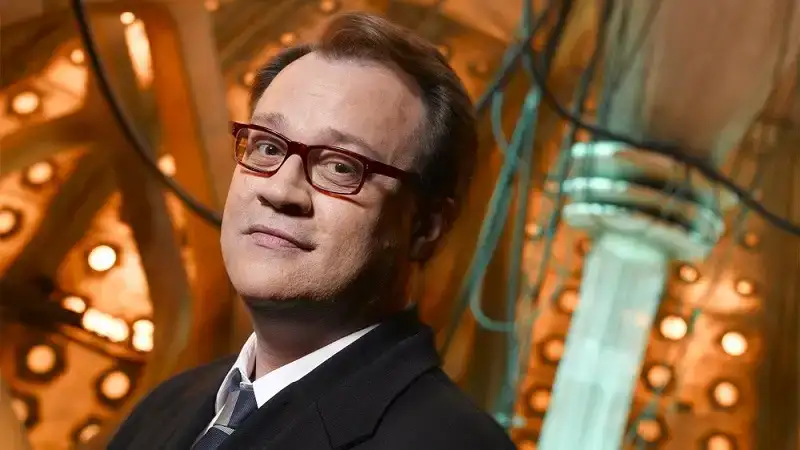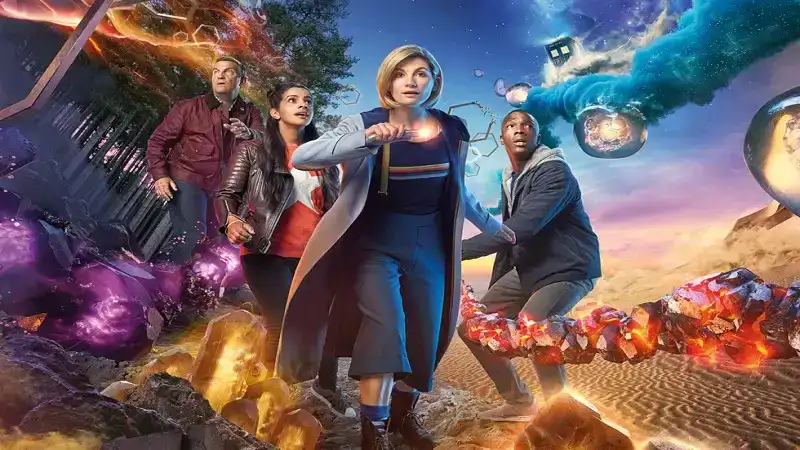Doctor Who has been a significant part of television history, captivating millions of viewers across the globe. The show, which first aired in 1963, has gone through many changes, but its core themes and characters have remained relevant for generations. The “Doctor Who Airer” has evolved, becoming a symbol of science fiction storytelling. In this article, we will explore the rich history of Doctor Who, how it has maintained its popularity, and what makes the show so beloved by fans worldwide.
The Origins of Doctor Who
The first “Doctor Who Airer” took place on November 23, 1963, on the British Broadcasting Corporation (BBC). At the time, no one could have predicted how influential the show would become. Created by Sydney Newman, C. E. Webber, and Donald Wilson, Doctor Who was initially conceived as a family program that would educate children about history and science through the adventures of a mysterious alien known as the Doctor.
The Doctor, played by William Hartnell, was an enigmatic character from a distant planet who traveled through time and space in his iconic ship, the TARDIS. The show quickly gained a following for its unique premise, combining education with entertainment.
The Concept of Regeneration
One of the key elements that has kept the “Doctor Who Airer” fresh and exciting is the concept of regeneration. Unlike other television characters, the Doctor can change their physical form and personality when mortally wounded or aging. This concept was introduced in 1966, when William Hartnell, the First Doctor, was replaced by Patrick Troughton, the Second Doctor.
The regeneration process allowed the show to continue without being tied to a single actor. It became one of Doctor Who’s defining features and allowed each new actor to bring their interpretation of the character. Over the years, the Doctor has regenerated many times, with actors such as Tom Baker, Peter Davison, and Jodie Whittaker taking on the role.
Iconic Villains in Doctor Who
Another reason why the “Doctor Who Airer” has remained popular is its array of memorable villains. The Doctor faces a variety of enemies throughout their travels, many of whom have become iconic in the world of science fiction. Some of the most well-known villains include:
- The Daleks: These extraterrestrial mutants first appeared in 1963 and quickly became the Doctor’s most feared adversaries. Their catchphrase, “Exterminate!”, is recognized by fans worldwide.
- The Cybermen: First introduced in 1966, these cybernetic creatures seek to convert all human life into cold, emotionless machines. Their chilling design and relentless pursuit make them one of the Doctor’s deadliest foes.
- The Master: A fellow Time Lord and the Doctor’s nemesis, the Master seeks to dominate the universe and has appeared throughout the series in various forms.
These villains, along with others like the Weeping Angels and the Zygons, contribute to the tension and excitement of the show.
The Cultural Impact of Doctor Who
The “Doctor Who Airer” has had a profound cultural impact, not just in the UK but globally. The show has influenced numerous aspects of popular culture, from literature and music to film and television. Many actors, writers, and directors have cited Doctor Who as an inspiration in their creative endeavors.
The show blends science fiction with social commentary. This mix lets it explore big themes like racism, war, and human nature. Episodes like “The Daleks” show a post-apocalyptic world. “The Green Death” tackles environmental issues. Doctor Who uses fiction to address real-world problems. The TARDIS, the Doctor’s time-traveling ship, has become one of the most recognizable symbols in television history. Its exterior, which resembles a British police box, is iconic. Fans have adopted the TARDIS as a symbol of adventure, knowledge, and the limitless possibilities of time and space.
The Role of Companions in Doctor Who
A significant aspect of the “Doctor Who Airer” is the role of the Doctor’s companions. These characters, often humans, accompany the Doctor on their journeys and help them navigate the challenges they face. Each companion brings a unique perspective to the Doctor’s adventures, and they often serve as the audience’s surrogate, asking questions and reacting to the bizarre situations in which they find themselves.
Some of the most beloved companions include:
- Sarah Jane Smith: Played by Elisabeth Sladen, Sarah Jane is one of the longest-serving and most popular companions. Her resourcefulness and bravery made her a fan favorite.
- Rose Tyler: Billie Piper’s portrayal of Rose Tyler, who accompanied the Ninth and Tenth Doctors, revitalized the series in 2005. Rose’s deep connection with the Doctor made her one of the most emotionally resonant companions.
- Clara Oswald: Played by Jenna Coleman, Clara was a key figure in the Doctor’s life and faced some of the show’s most heart-wrenching moments.
The companions help ground the Doctor, reminding them of their humanity and providing emotional depth to the series.
The Doctor Who Reboot in 2005
The “Doctor Who Airer” experienced a major revival in 2005 when the show was rebooted after a 16-year hiatus. Led by showrunner Russell T Davies, the revival brought Doctor Who into the modern age while staying true to its roots. Christopher Eccleston was cast as the Ninth Doctor, with David Tennant and Matt Smith following in his footsteps.

This modern iteration of Doctor Who introduced the show to a new generation of fans and cemented its place in contemporary pop culture. The reboot focused on character development and emotional storytelling, elements that resonated with audiences. The special effects and production values were also significantly improved, making the show visually appealing.
The Legacy of Doctor Who
The legacy of the “Doctor Who Airer” is undeniable. Few shows have the staying power and cultural significance that Doctor Who has achieved. As it approaches its 60th anniversary, the show continues to captivate audiences with its imaginative storytelling, complex characters, and exploration of time and space.
The Doctor, a character defined by curiosity, compassion, and a desire to protect the universe, remains a symbol of hope for fans. The show’s ability to reinvent itself while staying true to its core values has ensured its longevity.
In addition to the television series, Doctor Who has expanded into other media, including novels, audio dramas, and comic books. The fandom is vibrant, with conventions, fan clubs, and online communities dedicated to discussing and celebrating the show.
Doctor Who in the Modern Era
In the modern era, the “Doctor Who Airer” continues to push boundaries. The decision to cast Jodie Whittaker as the first female Doctor marked a significant moment in the show’s history and her portrayal has been met with praise for bringing new dimensions to the character.

The show has also continued to address social issues, tackling topics such as gender, politics, and identity. This commitment to exploring important themes has kept Doctor Who relevant in an ever-changing world. Moreover, new showrunners and writers have brought fresh perspectives to the series, ensuring that Doctor Who remains a dynamic and evolving narrative.
The Future of Doctor Who
As we look to the future of the “Doctor Who Airer,” there is no doubt that the show will continue to evolve. With its rich history and the ability to regenerate both its characters and its stories, Doctor Who is well-positioned to remain a beloved part of television for years to come.
New generations of fans are constantly discovering the show, and its influence on the science fiction genre shows no signs of waning. Whether through television, books, or other media, the Doctor’s adventures will continue to inspire and entertain.
Conclusion
The “Doctor Who Airer” is more than a TV show. It’s a cultural phenomenon that has impacted millions. Since 1963, it has grown into a global sensation. Doctor Who has changed over time but kept its essence. Its legacy lives on through regeneration, iconic villains, and memorable companions. This show’s influence will last for many years. Fans eagerly wait for new episodes and stories. Doctor Who stands as a symbol of adventure, curiosity, and hope in the world of science fiction. Read More Wealthybyte.
